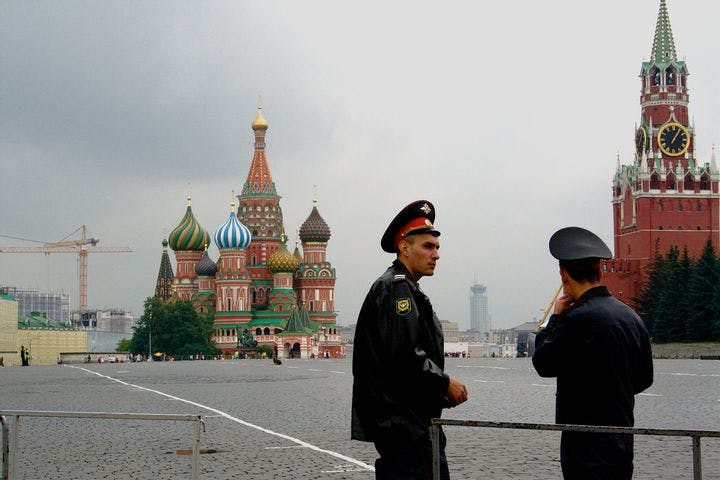Summer 2011
Stingless Authoritarianism
– The Wilson Quarterly
In the 20 years since thecollapse of communism, democracy has not exactly flourished in the post-Soviet lands.
In the 20 years since thecollapse of communism, democracy has not exactly flourished in the post-Soviet lands. Instead, a new variety of authoritarianism has arisen in many countries, one that exists in the space between old-style iron-fist authoritarian rule and Western democracy. The new authoritarianism is a paradox, writes Ivan Krastev, who chairs the board of the Center for Liberal Strategies in Bulgaria. The current government of Russia is a paradigmatic example. Russians in all walks of life tend to see the state as a failure, yet it is more resilient than the strong-handed regime that preceded it.
The Russian government “is only moderately repressive,” Krastev says. Russians can travel, surf the Web, and do business freely (but for a “corruption tax”). Almost 10 million of them travel abroad every year. In the early 1990s, many political scientists believed such freedoms were incompatible with authoritarian rule, that a regime that made such allowances would be “inherently fragile.” But Krastev argues that this openness actually weakens opposition and dissent.
Open borders have enabled dissatisfied citizens—potential activists—to leave the country for greener shores, Krastev says. “Why try to turn Russia into Germany, when there is no guarantee that a lifetime is long enough for that mission, and when Germany is but a short trip away?” One Russian economist recently estimated that more than “two million Russian democrats have left the country in the last decade,” Krastev notes.
At first glance, the new authoritarianism’s lack of a defining ideology seems a weakness, but the absence of a driving vision is actually a source of strength. The Russian government has no ideology beyond an insistence on not being lectured by the United States. Dissidents have nothing to attack, no “ideal against which the regime can be measured and found wanting.” In fact, Krastev observes, many post-Soviet elites view “communist ideology as one of the old regime’s weaknesses,” rather than a unifying force. Moreover, Western powers do not fear the export of a Russian ideology as they once did, and thus they too do not try to undermine the Russian regime.
Krastev says that the new Russian authoritarianism won’t implode the way communism did, but will instead slowly decline. “It is not,” he says, “ ‘after [Vladimir] Putin, the deluge,’ but ‘after Putin, the dry rot.’ ”
THE SOURCE: “Paradoxes of the New Authoritarianism” by Ivan Krastev, in Journal of Democracy, April 2011.
Photo courtesy of Flickr/Kelly
